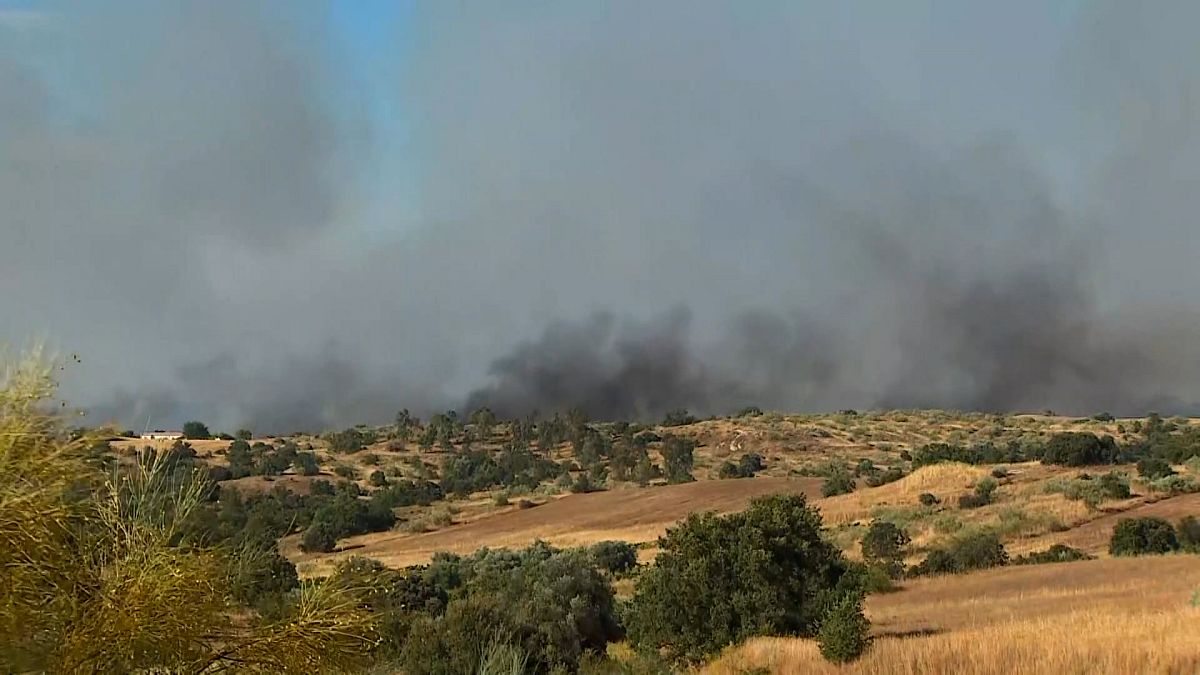

A series of recent events across the globe underline the delicate balance between human activity and natural forces. In distinct yet interconnected ways, these events highlight the impact of environmental phenomena on societies and the efforts underway to mitigate their effects.
In Spain, a wildfire erupted near the town of Méntrida, situated in central Spain, casting a thick haze over the capital, Madrid. The flames spread rapidly, driven by dry conditions and warm temperatures, prompting evacuations in parts of the region. The billowing smoke served as a sobering reminder of the enduring threat posed by wildfires, exacerbated by climate change. While firefighters work tirelessly to contain the blaze, authorities have issued warnings urging residents to exercise caution and prioritize safety.
Concurrently, the situation in South Korea serves as a testament to the disruptive power of torrential rains. Over four consecutive days, heavy downpours have led to significant challenges, including landslides and widespread flooding. With nearly 3,000 individuals unable to safely return to their homes, the human toll, which includes four fatalities, underscores the urgency of addressing this natural calamity. Meteorological forecasts suggest that the rain will persist until Monday in certain areas, prompting officials to continue advocating for vigilance to prevent further loss.
These scenarios, while occurring in different parts of the world, share a commonality in their link to the broader environmental discourse, which also encompasses water pollution. In England and Wales, a renewed commitment from government ministers aims to tackle all forms of water pollution comprehensively. With recent data revealing a concerning 60% rise in serious pollution events involving water companies, the initiative by Environment Secretary Steve Reed reflects an acknowledgment of the multifaceted sources of pollution. While sewage spills garner significant public attention, other culprits, such as agricultural runoff and pollutants from roadways, substantially contribute to the degradation of water systems.
The endeavors to address these pressing environmental issues highlight not just the challenges faced but also the resilience and innovation characterizing humanity’s response. In Spain, firefighting and evacuation efforts underscore the preparedness and swift action critical to minimizing wildfire impacts. Similarly, in South Korea, the focus on precautionary measures amidst heavy rains reflects a commitment to safeguarding communities during extreme weather events.
Moreover, the proactive steps taken by the UK government to address water pollution indicate a growing awareness and responsibility towards ensuring environmental sustainability. By targeting diverse pollution sources, the measures aim to protect vital waterways and ensure the well-being of both ecosystems and communities reliant on them.
As these events unfold, they serve as poignant reminders of the interconnected nature of the planet’s environmental systems. The challenges faced in one region can ripple across borders, emphasizing the necessity for global cooperation and unified efforts in confronting ecological issues. Whether it is tackling wildfires, managing the impacts of monsoons, or mitigating pollution, the call for a collective and compassionate approach to environmental stewardship becomes ever more pronounced.
In conclusion, as societies navigate these environmental trials, the emphasis remains on fostering resilience, cooperation, and sustainable practices. Through these actions, there lies potential not just to mitigate current crises, but to build a future where harmony with nature is celebrated and preserved.
Source: {link}
